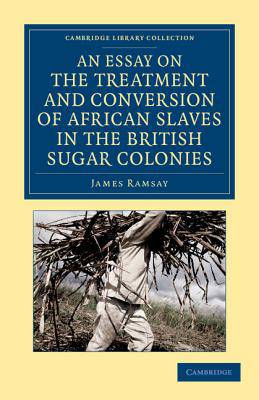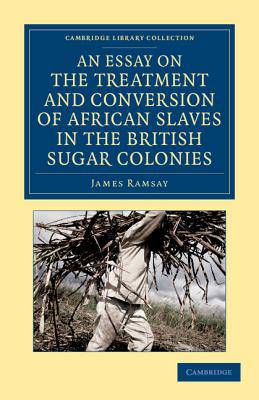
- Afhalen na 1 uur in een winkel met voorraad
- Gratis thuislevering in België vanaf € 30
- Ruim aanbod met 7 miljoen producten
- Afhalen na 1 uur in een winkel met voorraad
- Gratis thuislevering in België vanaf € 30
- Ruim aanbod met 7 miljoen producten
Zoeken
An Essay on the Treatment and Conversion of African Slaves in the British Sugar Colonies
James Ramsay
€ 70,95
+ 141 punten
Uitvoering
Omschrijving
Sugar cane plantations had operated across almost every island in the West Indies since the seventeenth century. Run by British planters, they relied on slavery as their main source of labour. A surgeon and Anglican minister, James Ramsay (1733-89) witnessed at first hand the exploitation of African slaves in Britain's West Indian colonies. Working there for over twenty years, as both a Christian missionary and a practising surgeon, he became keenly involved in the campaign to improve the welfare of slaves. This extended essay, first published in 1784, was an early and highly influential contribution to the anti-slavery movement, generating both enlightened acclaim and deep opposition. Analysing the relationships between slaves and their masters, discussing the role of slaves in society, and proposing various measures to improve their lives, this work remains a relevant text in Caribbean and colonial history.
Specificaties
Betrokkenen
- Auteur(s):
- Uitgeverij:
Inhoud
- Aantal bladzijden:
- 326
- Taal:
- Engels
- Reeks:
Eigenschappen
- Productcode (EAN):
- 9781108059947
- Verschijningsdatum:
- 6/06/2013
- Uitvoering:
- Paperback
- Formaat:
- Trade paperback (VS)
- Afmetingen:
- 140 mm x 216 mm
- Gewicht:
- 412 g

Alleen bij Standaard Boekhandel
+ 141 punten op je klantenkaart van Standaard Boekhandel
Beoordelingen
We publiceren alleen reviews die voldoen aan de voorwaarden voor reviews. Bekijk onze voorwaarden voor reviews.











